Share
Working at ESO
Are you interested in working in areas of frontline technology and in a stimulating international environment? Do you feel your profile matches our requirements? Learn more about our current vacancies and apply online. Read more..
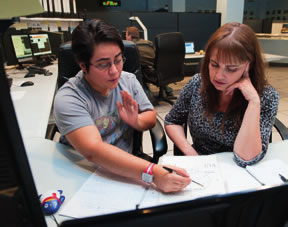
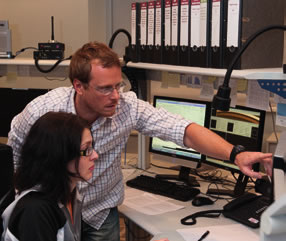

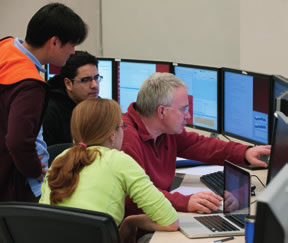
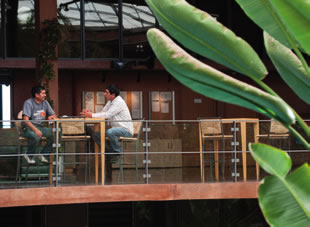

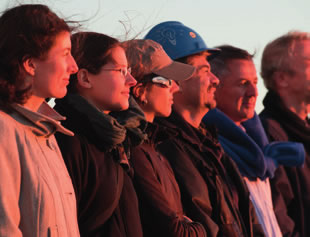

The European Southern Observatory (ESO) enables scientists worldwide to discover the secrets of the Universe for the benefit of all. We design, build and operate world-class observatories on the ground - which astronomers use to tackle exciting questions and spread the fascination of astronomy - and promote international collaboration for astronomy.
Established as an intergovernmental organisation in 1962, today ESO is supported by 16 Member States (Austria, Belgium, the Czech Republic, Denmark, France, Finland, Germany, Ireland, Italy, the Netherlands, Poland, Portugal, Spain, Sweden, Switzerland and the United Kingdom), along with the host state of Chile and with Australia as a Strategic Partner. ESO's headquarters and its visitor centre and planetarium, the ESO Supernova, are located close to Munich in Germany, while the Chilean Atacama Desert, a marvellous place with unique conditions to observe the sky, hosts our telescopes. ESO operates three observing sites: La Silla, Paranal and Chajnantor.
At Paranal, ESO operates the Very Large Telescope and its Very Large Telescope Interferometer, as well as survey telescopes such as VISTA. Also at Paranal ESO will host and operate the Cherenkov Telescope Array South, the world's largest and most sensitive gamma-ray observatory. Together with international partners, ESO operates ALMA on Chajnantor, a facility that observes the skies in the millimetre and submillimetre range. At Cerro Armazones, near Paranal, we are building "the world's biggest eye on the sky" - ESO's Extremely Large Telescope. From our offices in Santiago, Chile we support our operations in the country and engage with Chilean partners and society.
Within its Department of Communication at its Headquarters in Garching near Munich, Germany, ESO is offering
Internship: Science Communication
Garching
Deadline 01/02/2025
(As this is a rolling position, there is no application deadline. Therefore please state within your application your approximate preferred start date, if you have one. Applications are reviewed every 4-6 months throughout the year.)
ESO's Department of Communication is responsible for all aspects of internal and external communication for the Organisation. It covers the whole spectrum of communications, including media relations, content production, public and local outreach, digital communication and internal communication, and engages with a broad range of audiences ranging from scientists and the astronomy community, decision-takers and industry partners, to journalists and members of the public. It also coordinates closely with the ESO Supernova - Planetarium & Visitor Centre for astronomy education activities. The Department is based partly at the ESO Headquarters in Garching near Munich, Germany, and partly in Santiago, Chile.
In ESO's Department of Communication you will work with a team of professional science communicators for the preparation of ESO news and press releases, publications, web pages, video scripts, exhibition panels and other public communication products
Through your involvement in various projects and with our support, you will have the opportunity to understand and learn:
- About the mission of ESO and the role and responsibilities of the Department of Communication for its implementation;
- How a large international scientific organisation works in practice and in particular what are the workflows, processes and procedures within the Department of Communication;
- How to write about complex scientific issues in an engaging and understandable manner;
- How to edit texts and work on drafts as a team to ensure the final press release, script or blog post is accessible and exciting to its target audiences;
- How written text and audiovisuals can be combined to make science attractive and approachable to the public.
For more information about this internship, please check this article: https://www.memsait.it/volumi/Volume-95-n2-2024/2024MmSAI..1...65e.pdf
Requirements:
We are looking for people who want to gain experience in science communication of frontline astronomy projects.
You should have some previous experience in written science communication/journalism and have enough basic knowledge of astronomy to be able to understand scientific papers. You must be fluent in English both written and oral.
Candidates currently studying or having recently completed a University degree in science, science communication or science journalism, are preferred. We also welcome applications from students who have recently completed a degree in astronomy and have experience in writing about science to wider audiences.
Competences:
You should be able to:
- Understand and translate scientific research into simple concepts and write about it to general audiences in an engaging and accurate manner;
- Provide clear, concise and timely written and oral communications;
- Work under time pressure and deliver to agreed deadlines and standards;
- Work both on your own initiative and as part of a team;
- Build good collaborative working relationships with people from different cultural backgrounds and disciplines.
Internship details:
Internship opportunities are offered throughout the year. Internships take place in Garching, Germany (a remote or hybrid internship is not possible) and have a duration of 6 months. We offer a monthly allowance to cover your living expenses and we provide accommodation. We also cover the cost of a return trip from/to your home station. For any further questions please contact vacancy@eso.org.
Application:
If you are interested in our internship opportunities, you are invited to apply online at http://jobs.eso.org/. Applications must be completed in English and should include a motivation letter (1 page) and your CV (2 pages). Please also upload two written samples (each no more than 5 pages long) that demonstrate ability to communicate science to a wider audience (e.g. blog posts, magazine or newspaper articles, press releases etc.; scientific papers or theses, which target a scientific audience, are not accepted). The samples must be in English and they do not need to have been published previously; you can write or adapt texts for the purpose of the application. Please note that only complete applications, with all required materials in English, will be accepted.
As this is a rolling position, there is no application deadline. Therefore please state within your application your approximate preferred start date, if you have one. Applications are reviewed every 4-6 months throughout the year.
ESO Values
An important element in any successful employment relationship is harmony in values between an organisation and its people.
The ESO Values are:
ESO strives for excellence through innovation.
ESO provides outstanding services to its communities.
ESO fosters diversity & inclusion.
ESO believes in the key role of sustainability for its future.
Achieving the above are recognized as only possible on the basis of personal values and attitudes that we expect from our employees: respect, integrity, accountability, commitment, collaboration, and clear & open communication.
Applicants to any ESO role are asked to reflect on their affinity with these values and advised they may be asked about them if called for interview.
Diversity
ESO has established diversity as an important value of the Organisation, is committed to providing an equal opportunities environment and is actively seeking to promote a diverse, equitable and inclusive workforce.
No nationality is in principle excluded. However, recruitment preference will be given to nationals of Australia, Austria, Belgium, the Czech Republic, Denmark, Finland, France, Germany, Ireland, Italy, the Netherlands, Poland, Portugal, Spain, Sweden, Switzerland and the United Kingdom and, for Chile, to students enrolled in a South American university irrespective of gender, age, disability, sexual orientation, ethnicity or religion.
